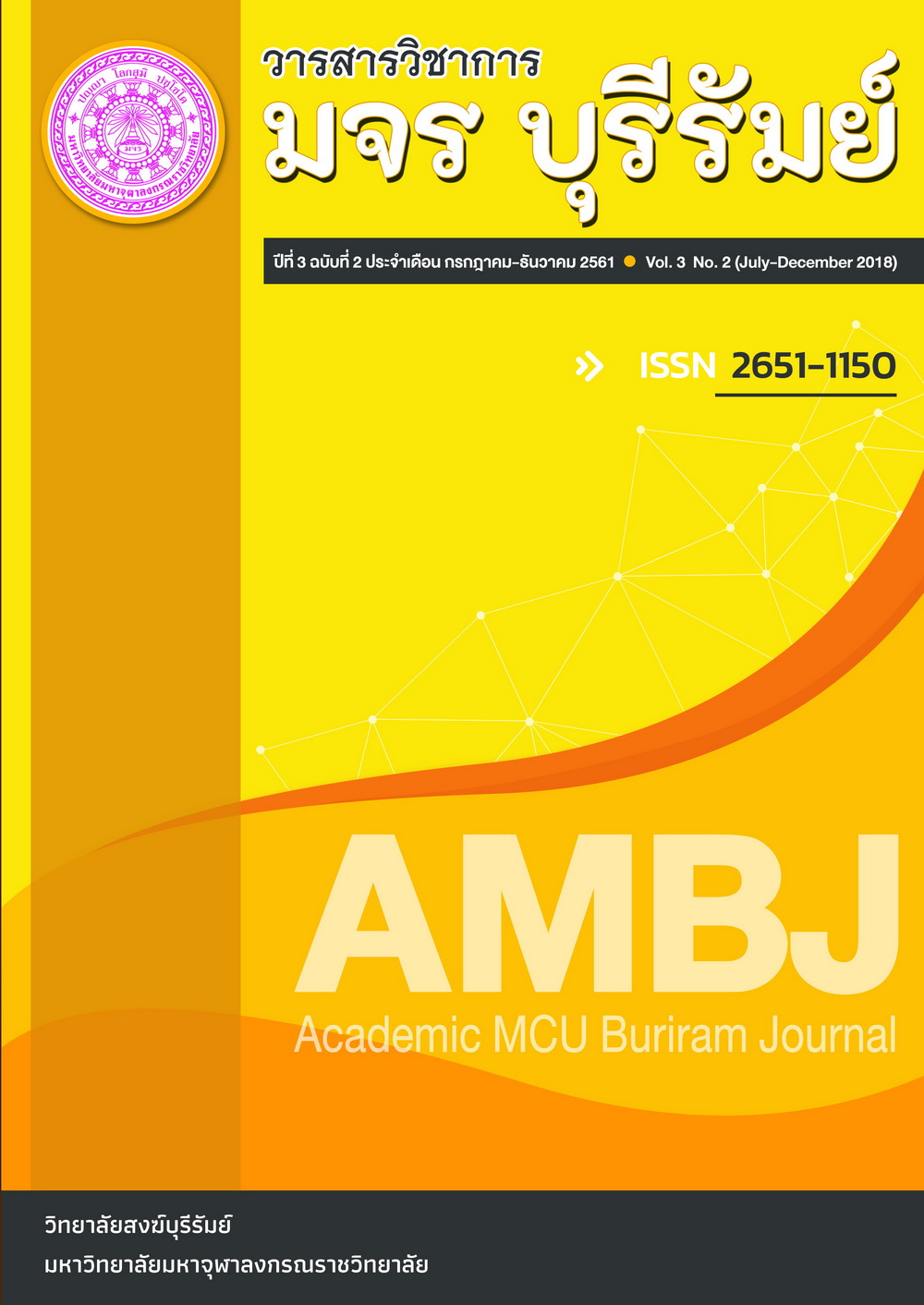Concept, Components, Indicators, Experiences and Integration of the Five Precepts Villages Project
Keywords:
Indicators, Integration, Five PreceptsAbstract
This research have three objectives: 1) to an analytical study of concept, components, indicators, 2) to remove the learned lessons from the five precept in the project of village of the abstaining from the five precepts, and 3) to integrate the principles of the five precepts to improve standard of lives of Thai peoples in Thai society.
From the research, it is found that firstly, concept, components, and indicators of the project of village of the abstaining from the five precepts are the following details: In its concept, it is came from awareness many problems in Thai societies and having attempts to solve them with applying the principles and methods of the five precepts in Buddhism into daily lives of Thai people. In its components, they consist of working committee in the level of country, provinces, districts, sub-districts, and villages. And in its indicators, they consist of quantitative and qualitative indicators. The second, its learned lessons in each place are cooperation between temples, peoples and organizations of government, these are factors of succeed of this project. The third, integration of them for development of standards of lives in Thai societies can be integrated in both of individuals, organizations, and societies by connecting activities in the past into their processes and using the main institutes: Nation, religions, and kings, as the important power of integration.
Researcher would like suggest that all parts in societies related to this project should continuously support the Five Precept Villages Project, do not should do it to end in only 2017, should organize it as “National Agenda” to be application in daily lives of Buddhists continuously. Its outcomes should emphasize to the qualitative results more than the quantitative results.
Downloads
Published
How to Cite
Issue
Section
License
ทัศนะและความคิดเห็นที่ปรากฏในบทความวารสารฉบับนี้ถือเป็นความรับผิดชอบของผู้เขียนบทความนั้น ไม่ถือเป็นทัศนะและความรับผิดชอบของบรรณาธิการ





